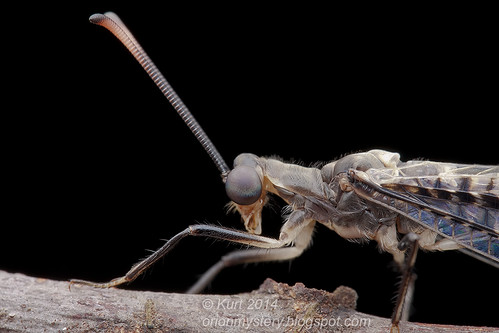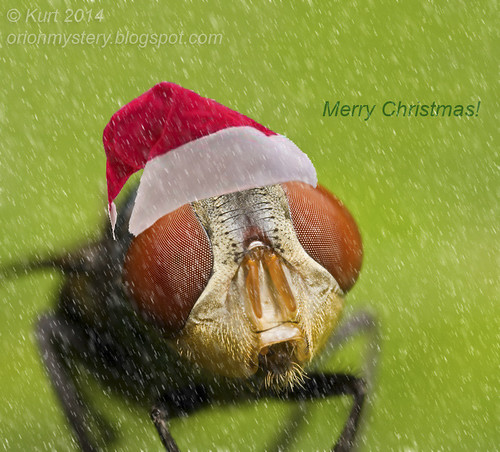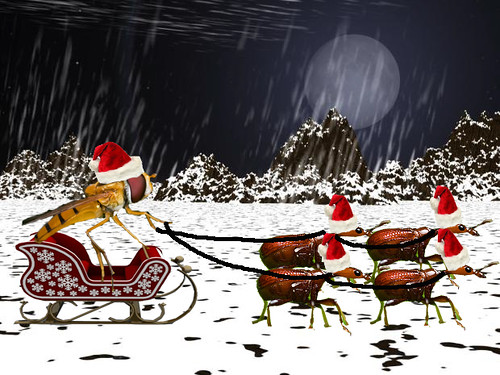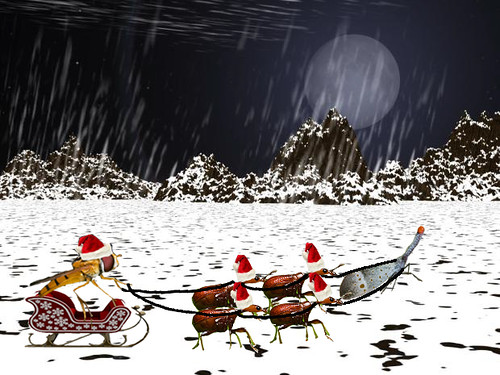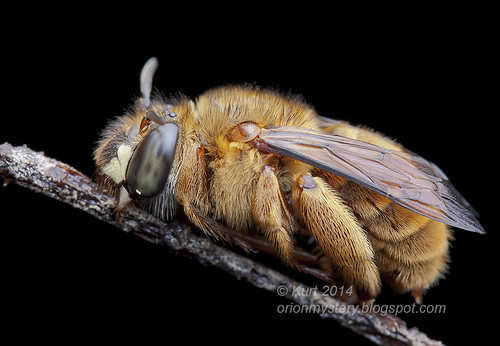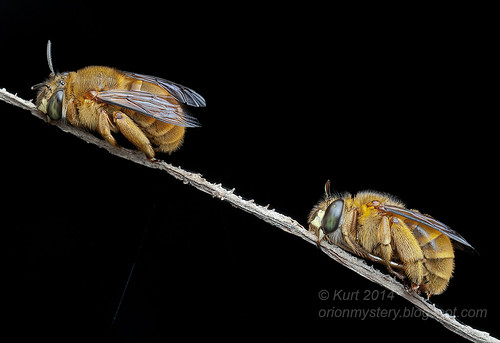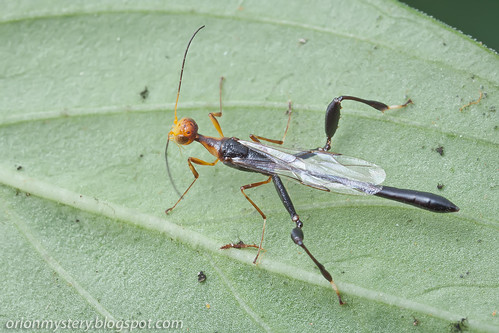Lacewing and mantidfly are insects in the order
Neuroptea (net winged insects). Both are quite rare, at least here in Malaysia. I have only seen like 7 lacewings in four years of macro photography, and even fewer mantidflies! Other Neuropterans like antlions and owlflies will be included here as well.
My first mantidfly. What a gorgeous creature!

Another shot of this beauty.

Another one with slightly duller color. Not sure if it's the same genus with only sexual dimorphism or what? Or immature, yet to fully color up?

Some very interesting images of a mantidfly laying eggs
here. It is in Mandarin but you can just enjoy the images. Another one
here.
Check out this totally cool clip on mantisfly larvae:
A new lacewing species I found in Selangor. Also my first time lucky with lacewing. Saw a couple before but never managed any decent shots. I first saw and photographed this species in the wild in its natural habitat on May 10, 2011. A few lacewing experts informed me that this could be a new species. Luckily, I came across this beautiful species again on Jan 27, 2012. Specimen was captured and sent to Mr. Winterton.
New species.
Semachrysa jade. Taxon Author: Winterton, Guek & Brooks, 2012. More info
here,
here and
here.
More images of this beautiful lacewing can be found
here.




Lacewing from Kota Kinabalu, Sabah, Malaysia (Borneo).
Chrysopidia (s. str.) sp. - ID suggested by Roberto A. Pantaleoni.

Closer shot

My second time lucky with lacewing :)

Third time lucky with green lacewing:)

Another one we found in Gunung Gading, Sarawak. Beautiful brown lacewing. Family:
Hemerobiidae, Genus:
Micromus(?)


White lacewing,
Ankylopteryx sp.

 Italochrysa cf. insignis
Italochrysa cf. insignis, ID credit: Roberto A. Pantaleoni. Selangor, Malaysia.

Beautiful lacewing photobombed by a winged ant!
Italochrysa sp., near
I. insignis - ID credit: Roberto A. Pantaleoni. Selangor, Malaysia.

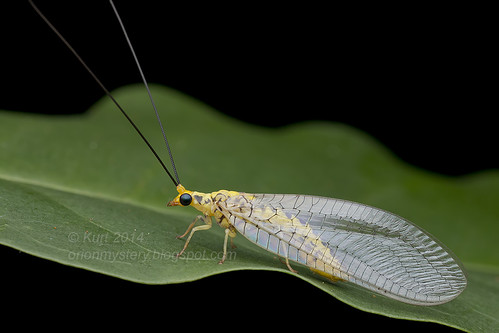 Italochrysa cf. japonica
Italochrysa cf. japonica, ID suggested by KS Wong.
 Italochrysa cf. japonica
Italochrysa cf. japonica, ID suggested by KS Wong.
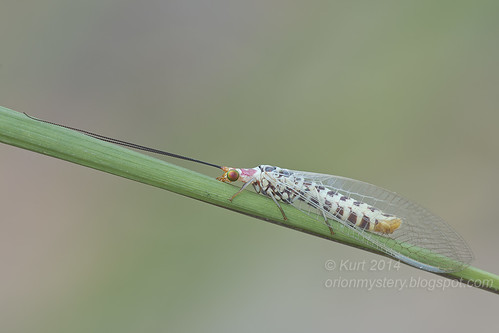
Mnay of you may not have seen a live lacewing before but I am sure you have seen lacewing junior (larva!) at one time or another. Both adult lacewings and larvae are predatory and feed on plant pests like aphids.

Check out this cool clip on lacewing larva:
All images shot with a
40D, MP-E65, MT-24EX Twin Flash and
DIY Concave Diffuser.
Full flash, 1/200, around F13, ISO 100, handheld.
Owlflies from
Maliau Basin:
 Ascalohybris borneensis
Ascalohybris borneensis

My first antlion (Myrmeleontidae)
A larva

Full body shot.
Myrmeleon sp. - IDed by Roberto A. Pantaleoni


Adult antlion,
Distoleon sp., possibly
D.dirus (Walker, 1853) - ID credit: Davide Badano. Selangor, Malaysia.
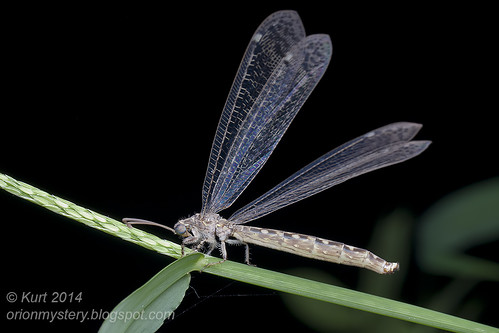 Dendroleon
Dendroleon, close to
caelestis. Possibly a new species - IDed by Виктор Кривохатский and Davide Badano.
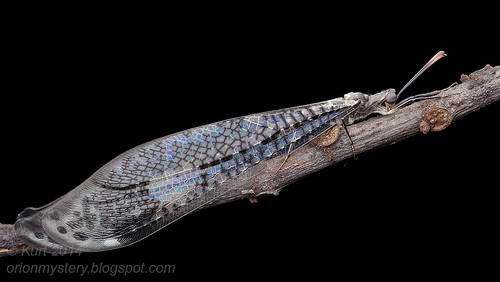
Same specimen as above
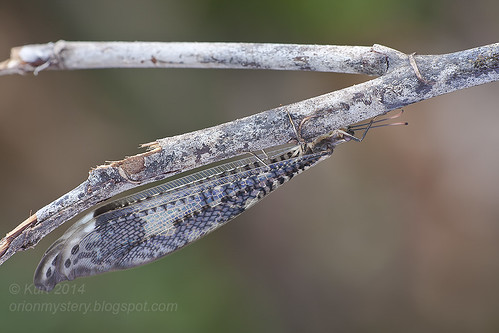
Same specimen as above, closer.
